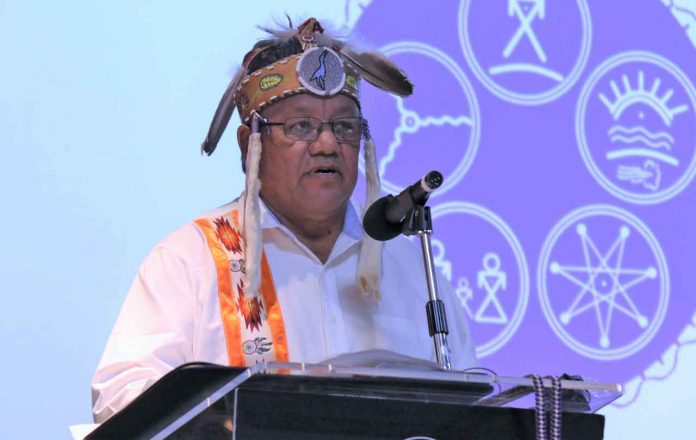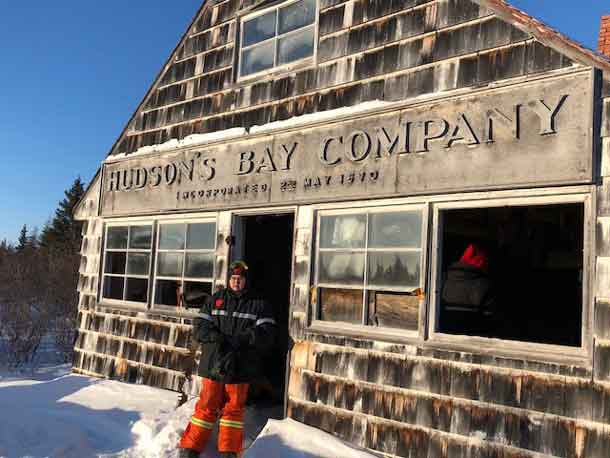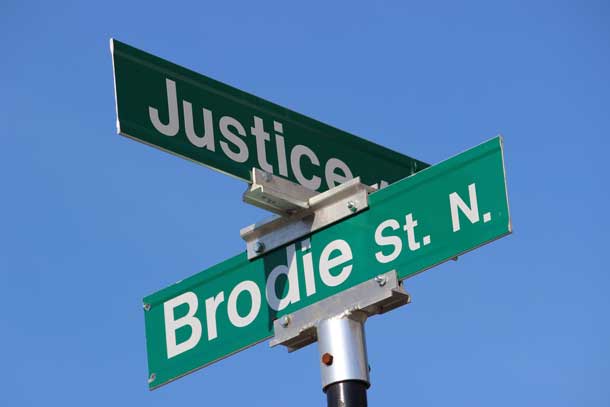TORONTO – Ontario Regional Chief Glen Hare issued the following statement in support of Robinson-Huron Waawiindamaagewin’s release of a new research report: An Exploratory Study of the Métis Nation of Ontario’s “Historic Métis Communities” in Robinson-Huron Treaty Territory:
“I support Robinson-Huron Waawiindamaagewin (“RHW”) and its 21 member First Nations in their release of An Exploratory Study of the Métis Nation of Ontario’s “Historic Métis Communities” in Robinson-Huron Treaty Territory,” said Ontario Regional Chief Glen Hare. “This study serves to support their efforts to occupy and exercise authority and jurisdiction over its communities, economies, and ways of life within their territory since time immemorial.”
The report prepared by Dr. Darryl Leroux and Dr. Celeste Pedri-Spade examines four of the so-called “historic Métis communities” within the Robinson-Huron Treaty territory: Georgian Bay, Killarney, Mattawa, and Sault Ste. Marie.
“The report reveals that the Métis Nation of Ontario’s (MNO) research practices and ’evidence’ claimed to support its recognition are deeply flawed. The research findings show that the ’evidence’ used by the MNO does not meet the criteria set out in R v. Powley by the Supreme Court of Canada (SCC) to recognize the existence of historic Métis “communities.”
Under R v. Powley, a Métis community wishing to acquire section 35 rights must prove its ties to a geographically localized, stable, identifiable, and continuous community of Métis, with a distinctive collective identity, and a shared way of life prior to when Europeans established effective political and legal control of the area.
Using the MNO’s own documentation, the report concludes the MNO has not met this test and its standards. Rather, MNO’s recognition of these aforementioned communities relies on changing the identities of First Nations individuals into Métis, simply because they are mixed-race, and not because they identified with an existing Métis community. Mixed-race does not mean that someone is Métis.
First Nations in the Ontario region support the legitimate claims of Métis Peoples, however, note that recognition of unfounded claims undermines legitimate inherent rights-holders and dilute section 35 rights.
The Chiefs of Ontario reject the existence of the so-called “historic Métis communities” in the Ontario region and are of the position that the MNO is claiming a false history in our First Nations territories.”
“The Anishinabek have not given the Métis any rights,” said Ogimaa Kwe Linda Debassige of M’Chigeeng First Nation. “We do not recognize any MNO communities or any rights that the Crown may give them.”
“This report is the second of its kind that has been released over the past year in response to growing concerns about claims to Indigenous ancestry and Aboriginal rights made by the Métis Nation of Ontario,” said Regional Chief Hare. “I encourage everyone to also review the report prepared for the Wabun Tribal Council titled The “Historic Abitibi-Inland Métis Community” – Final Report.
The findings in these reports are shocking and ought to sound the alarm. First Nations in Ontario are deeply concerned that Canada entered into an agreement with the MNO to recognize these so-called Métis ’communities; without proper diligence. It is not within Canada’s power to create Aboriginal rights from scratch.
I call on the provincial and federal governments to read these reports before proceeding with the implementation of the Métis Government Recognition and Self-Government Implementation Agreement with the MNO and to provide a meaningful response to First Nations on how they intend to proceed given these research findings.
Further, I call on the MNO to provide a legitimate response to the findings in these reports. The MNO can no longer simply claim these findings are fabricated ‘misinformation’ and sweep them under the rug.”
Ontario Regional Chief Glen Hare (Gwiingos)







